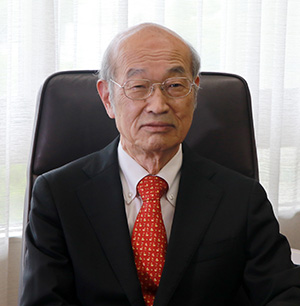How much will the opposition parties, including the Constitutional Democratic Party, which formed a coalition, gain in votes? The much-anticipated House of Representatives election has ended. While watching the vote count report on television, for a while it seemed that the characteristics of the single-seat constituency system were clearly on display. This is because the "opposition coalition" was formed in three-quarters of the single-seat constituencies nationwide, and the opposition candidates seemed to be fighting one-on-one against the ruling party candidates. When the single-seat constituency system was introduced, it was said that it would make it relatively easy to change power, just like the model of the UK. It seemed that such an atmosphere was emerging, but in the end, the Constitutional Democratic Party, which was expected to gain a large number of seats, ended up losing seats. The same was true for the Communist Party. One political commentator described it as "a crushing defeat for both the Constitutional Democratic Party and the Communist Party."
On the other hand, the Liberal Democratic Party, which was expected to lose a large number of seats due to its poor response to the COVID-19 pandemic, not only did it secure a majority on its own, but it also secured an "absolutely stable majority" (261 seats), which would allow it to monopolize the chairperson posts of the 17 standing committees in the House of Representatives. In addition, the Japan Restoration Party, which did not join the coalition, significantly increased its number of seats. Let's consider what we can learn from this election.
In the world of public economics, I think it is common to consider voters' voting behavior through cost-benefit analysis. In other words, voters compare the costs and benefits of voting, and if they think the benefits are large, they will vote, and if they think the benefits are small, they will not vote.
In this case, the costs would include the cost of gathering information about candidates and the cost of travel to the polling station. It would also include the cost of giving up the pleasure of, for example, playing golf by going to the polling station, in other words, the opportunity cost. This is probably the largest cost in cities, where there are many opportunities to enjoy various leisure activities. On the other hand, the benefits of voting could include the possibility that policies favorable to you will be adopted, and the satisfaction of having fulfilled your duty as a member of society.
Many voters who voted in this general election decided that the benefits of voting for the LDP outweighed the various costs they had to pay. Why was this? I think it is because many voters want "stability." The election pledges of the opposition parties included a variety of handout policies, including a reduction in income tax and consumption tax, albeit for a limited period of time. The LDP has also incorporated Prime Minister Kishida's "new capitalism" into its election pledges, and appears to be prepared to implement policies with an emphasis on "distribution." It seems that voters judged the LDP to be more realistic than the opposition parties.
What is even more noteworthy is that the voter turnout was unexpectedly low at just over 55%, the third lowest since the end of the war. Why was the voter turnout so low, even though the general election was held just after the Suga administration resigned after one year in power due to criticism of the negative effects of Abe's long-term administration and its mismanagement of COVID-19 countermeasures? This, too, seems to reflect the public's emphasis on "stability."
Since the beginning of the 21st century, there have been two general elections in which the voter turnout rate was close to 70%. The 2005 general election (67.5%), known as the Postal Election, and the 2009 general election (69.3%), which saw the Democratic Party come to power. In both cases, the public was in an uproar, saying, "We can't continue like this." This time, however, things are different. People who are not satisfied with the LDP, but cannot leave the government in the hands of the opposition party, are likely to have chosen to abstain. This may also be due to the fact that not much time has passed since the collapse of the Democratic Party government, which led to politics becoming almost dysfunctional. Voters who did not go to the polls can be said to have chosen "passive stability."
(Diary entry dated November 2, 2021)

[Profile of Shigeo Uchida]
Graduated from the Faculty of Economics at Keio University in 1965. Joined the Nikkei Inc. After working in the Securities Department of the Editorial Office, the Japan Center for Economic Research, head of the Securities Department at the Tokyo Head Office and as an editorial writer, he became Professor Chiba University of Commerce in 2000. He has been Managing Director Corporation since 2011 (until May 2019). He is also Professor Emeritus Chiba University of Commerce. He has served as a member of the Economic Council, Securities and Exchange Council, and Research Council for Energy, among others. His hobby is chorus.
<Major publications>
"Seminar: Introduction to the Japanese Economy" (co-author, Nihon Keizai Shimbun)
"Showa Economic History (Part 2)" (co-author, Nihon Keizai Shimbun)
"The New Japanese Economy" (co-author, Nihon Keizai Shimbun)
"History of Japanese Securities 3" and "Now You Can Understand! How the Japanese Economy Works" (sole author, Nihon Keizai Shimbun, Inc.)
"New Introduction to the Japanese Economy" (co-author, Nikkei Publishing Inc.) and others